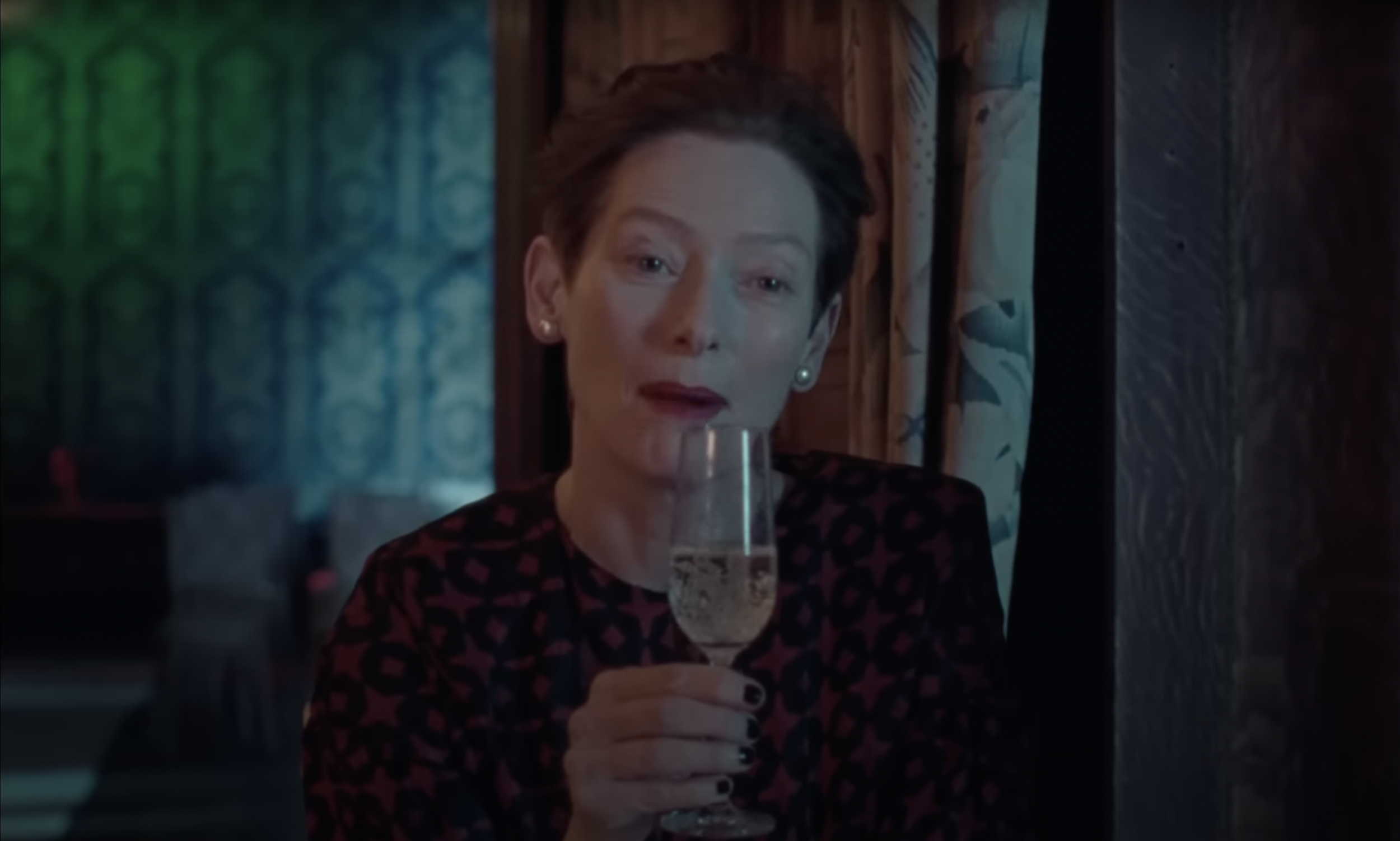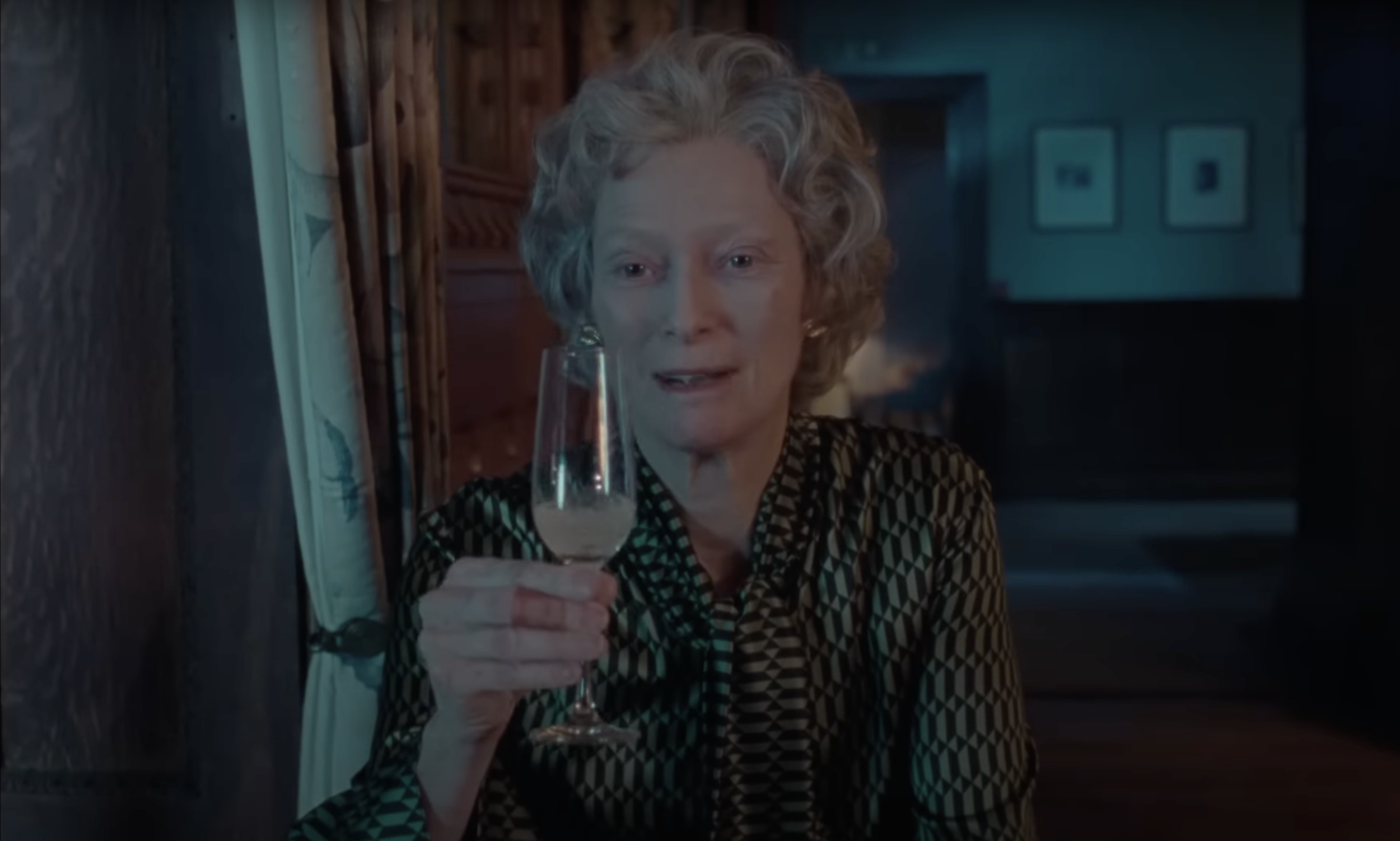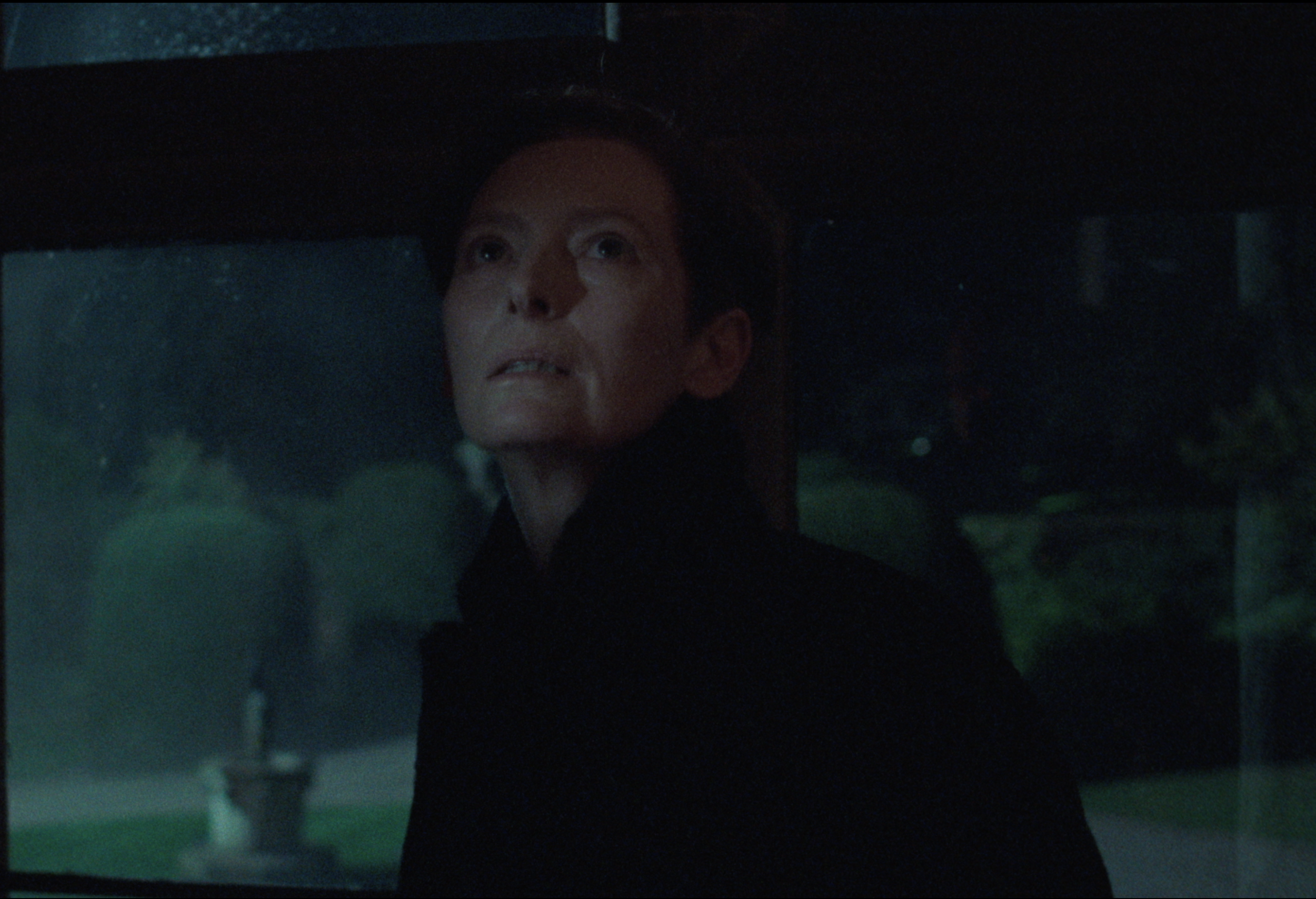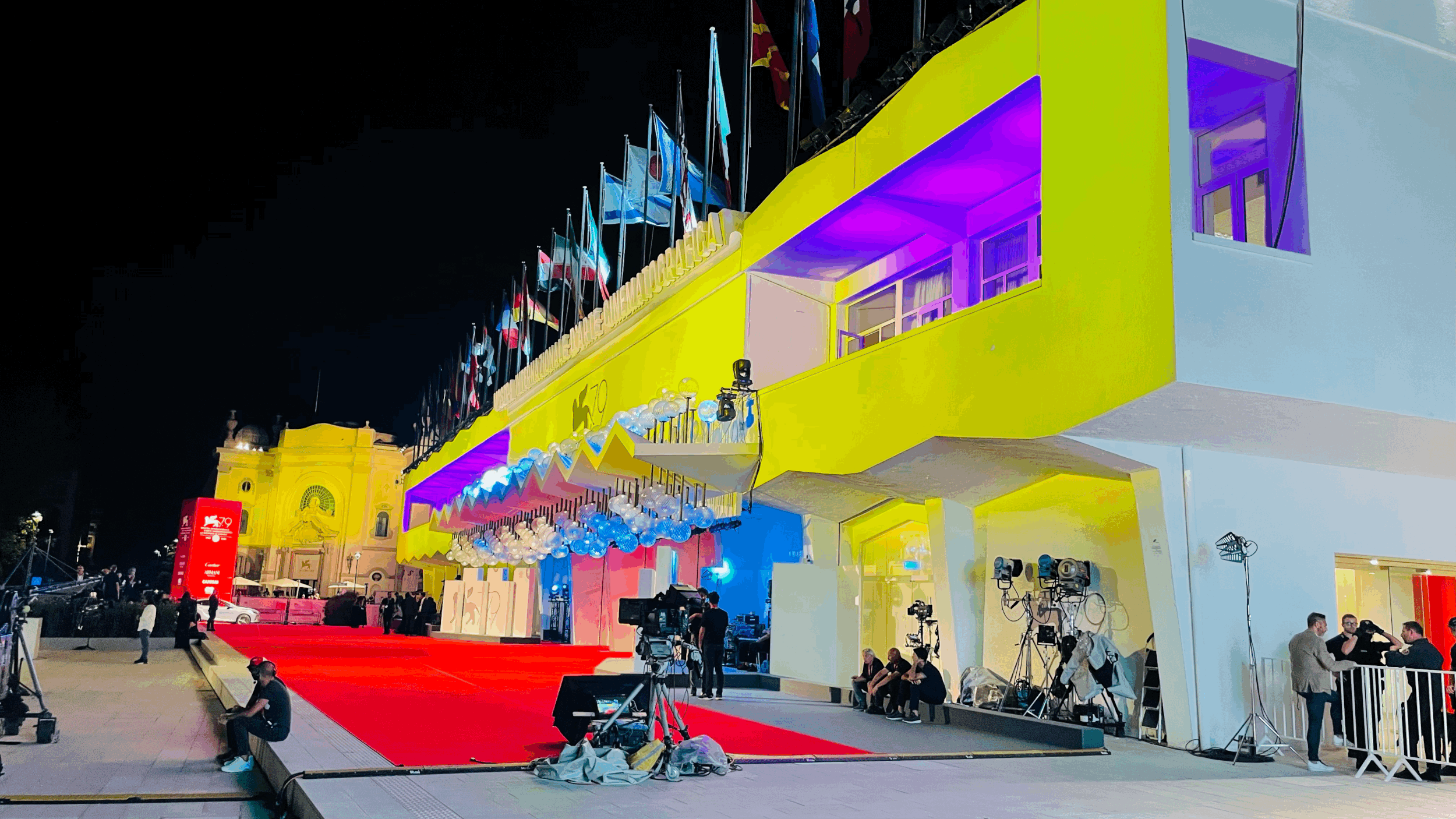The Eternal Daughter directed by Joanna Hogg
The Eternal Daughter
Directed by Joanna Hogg
Starrings: Tilda Swinton, Carly-Sophia Davies, August Joshi
Country: USA, UK
Year 2022
Author review: Roberto Matteucci
Click Here for Italia Version
“Happy birthday, mum.” “To us.”
In the Elettra complex, the little girl detaches herself from her mother to fall in love with her father. Her mother has become her rival, so she treats her with hostility. For Freud, this phase, like in the Oedipus complex, was born in the phallic period around the age of four/five. The normal development of this stage is overcome with growth and maturity. There is a recognition of the impossibility of establishing a relationship with the father and a gradual identification of the child with her mother. These feelings become more intense over time.
This identification of mother and daughter, even physically, is the subject of the film The Eternal Daughter by director Joanna Hogg, presented at the 79th Venice Film Festival.
Countryside, fog, a lots of fog. A car driving on a gloomy road. Inside are two women, Rosalind, the mother, and Julie, the daughter. Rosalind sleeps while Julie listens to the ghost stories of the driver. The journey ends in emptiness. In a square submerged in a thick haze, the car stops in front of the Moel Fanam Hall, an ancient English noble mansion, transformed into a luxury hotel. The hospitality is not professional. The receptionist cannot find the reservation, there is no Wi-Fi, and the restaurant is closed, so they cannot have dinner.
The palace belonged to Rosalind's family. She spent her infancy in its vast rooms. At night, the receptionist returns home. The hotel appears uninhabited, with no other guests. However, the building is filled with strange and disturbing noises, sounds, and squeaks.
In the black, Julie foots in the corridors. One evening, she finally met a man. He worked at the hotel. Although he is retired, he still lives there.
Julie protects her mother during the cohabitation, until an anguished and delirious birthday party.
The mother-daughter relationship is the exclusive argument of the story, manipulated by the director to get more attention. The scheme involves Tilda Swinton in both roles of mother and daughter.
The filmmaker describes the psychoanalytic motivation as follows:
“The story completely came about because of my relationship with my mother, and because of a fear of my mother one day disappearing,” Hogg said. “It’s something that has haunted me since I was a child.”
...
“I eventually got over that,” Hogg said. “There was something about making the “Souvenirs” together [with Swinton] and the way Rosalind and Julie became their own people. So at a certain point, it’s no longer about my mother and myself. It’s about these two other people.” (1)
The solution was identified. To accentuate it, she never framed them together. Indeed:
Yeah, it’s true, someone doesn’t necessarily listen to what the other person is saying. I suppose that’s very characteristic of Julie and Rosalind. Rosalind especially is very much inside her own mind, and then there’s a sort of guess work that happens between mother and daughter, and yeah, where the edges get blurred between the two. (2)
Life is often cruel, tragic, and the director confuses the real with the imaginary:
That decision “gave birth to an entirely different film,” Swinton continued — one that often leaves the audience wondering what is real and what is imagined or dreamed. “I love that thought, that the audience might ever [wonder], ‘Is it just me? Because I’m not getting it.’ It’s sort of what one wants as a filmmaker — is for people to be open enough to not know because the truth about this story in particular is that it’s very important not to know. It’s very important to feel lost in the way that Julie is lost.” (3)
It is the spectator's entertainment, guessing the secrets of the fog, the origin of odd rattles, the improbable characters, the solitude.
Outlining women's personalities is more of a game than psychological speculation. There are no two distinct individuals, the character is unique: haughty, right-thinking, noble, snobbish, weak, fragile, prudent, faithful. The difference is in the ending, where Julie shows the extent of her suffering.
Joanna Hogg mainly emphasizes the reality/imagination duality. The hotel seems abandoned, sad, obscure, desolate and the author uses photography of chiaroscuro, threatening shadows. A classic but always efficient system. Tilda Swinton supports her with fearful evening walks, with slow gestures, with telephone calls. The night is deserted but there is a sense of an eerie presence. Someone is at the window, there is a persistent irritating sound.
The hotel has a large and lush garden, which is green even at night. Julie watches it in the darkness. She also hears noises from above, and frightens peers into the ceiling, but no one is there.
The anomaly of the night is broken by loud music. It is from the adjacent parking. It is the boyfriend's car waiting for the unpleasant receptionist. She is unpleasant but, in her annoying replies, she was the only real, tangible person in the whole story.
A plot twist is revealed in the receptionist's kind words at the end. The girl has changed and Julie will leave knowing that they have achieved the purpose of their stay.
The structure is simple. First, the introduction of the leading characters, followed by some unexplained events in the hotel. The threads of mystery unfold at her mother's birthday dinner. It should be a party but it is only the explosion of Julie's catharsis.
The plot has a rhythm dictated by the various clamours, by the implausible apparitions, by a subjective of someone hidden: Julie walks and she blocks in front of the camera without staring at it. The subjective is the camera or some spies from above.
Subsequently, the tension breaks but no striking event happens. The audience is waiting. Something could happen but nothing does. Screeching, noise, draughts, slowly closed doors are continuous but the expectation vanishes.
The director uses a careful search for light sources to exploit every corner of the opulent mansion. It is a lot predictable. Moel Fanam Hall is not the Overlook Hotel.
There are some platitudes: the mother-daughter dialogue on the birthday, the childish squabbles with the mother, her refusal to eat and Julie's infantile reaction: then she too won't eat and so on. However, these small defects do not diminish the film's merits.





















A metaphorical comparison between Akira Kurosawa’s Ikiru and its remake Living by Oliver Hermanus, presented at the 79th Venice Film Festival.